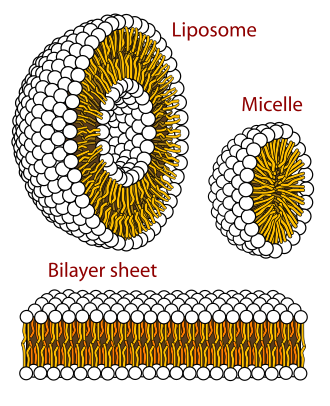Abiogenesis
Abiogenesis[edit]

Abiogenesis is the natural process by which life arises from non-living matter, such as simple organic compounds. The study of abiogenesis is a major field of research in biology and chemistry, focusing on how life on Earth might have originated from inanimate matter.
Historical Background[edit]
The concept of abiogenesis has evolved over time. In ancient times, it was believed that life could spontaneously arise from non-living matter, a theory known as spontaneous generation. This idea was challenged and eventually disproven by experiments conducted by scientists such as Louis Pasteur.
Modern Theories[edit]
Modern scientific theories of abiogenesis suggest that life began through a series of chemical reactions that produced increasingly complex organic molecules. These theories are supported by experiments such as the Miller-Urey experiment, which demonstrated that organic compounds could be synthesized from inorganic precursors under conditions thought to resemble those of early Earth.

Prebiotic Chemistry[edit]
Prebiotic chemistry refers to the chemical processes that preceded the formation of life. It involves the synthesis of simple organic molecules, such as amino acids and nucleotides, which are the building blocks of life. The formose reaction is an example of a prebiotic chemical process that could have contributed to the formation of sugars on the early Earth.

RNA World Hypothesis[edit]
The RNA world hypothesis suggests that self-replicating RNA molecules were precursors to current life (which is based on DNA and proteins). RNA is capable of both storing genetic information and catalyzing chemical reactions, making it a plausible candidate for the first self-replicating molecule.
Lipid World Hypothesis[edit]
The lipid world hypothesis proposes that the first self-replicating entities were lipid structures, such as micelles or vesicles, which could encapsulate and concentrate organic molecules, facilitating chemical reactions.

Geological Evidence[edit]
Stromatolites are layered sedimentary formations created by the growth of microbial mats. They provide some of the oldest evidence of life on Earth, dating back over 3.5 billion years.
-
Stromatolites
-
Stromatolites in Shark Bay
Astrobiology[edit]
Astrobiology is the study of the origin, evolution, distribution, and future of life in the universe. It encompasses the search for extraterrestrial life and the conditions that might support it. NASA's astrobiology program investigates the potential for life beyond Earth and the processes that might lead to its emergence.

Energy and Metabolism[edit]
The emergence of life required the development of metabolic pathways to harness energy from the environment. The chemiosmotic coupling mechanism, involving structures like ATP synthase, is a fundamental process in modern cellular metabolism.
-
ATP synthase
-
Chemiosmotic coupling in mitochondria
Extraterrestrial Influences[edit]
Some theories suggest that life's building blocks may have been delivered to Earth via comets or meteorites. The Cats Paw Nebula and other cosmic phenomena are studied to understand the potential for organic molecules to form in space and be transported to planets.

Related Pages[edit]
Ad. Transform your life with W8MD's Budget GLP-1 injections from $75


W8MD offers a medical weight loss program to lose weight in Philadelphia. Our physician-supervised medical weight loss provides:
- Weight loss injections in NYC (generic and brand names):
- Zepbound / Mounjaro, Wegovy / Ozempic, Saxenda
- Most insurances accepted or discounted self-pay rates. We will obtain insurance prior authorizations if needed.
- Generic GLP1 weight loss injections from $75 for the starting dose.
- Also offer prescription weight loss medications including Phentermine, Qsymia, Diethylpropion, Contrave etc.
NYC weight loss doctor appointmentsNYC weight loss doctor appointments
Start your NYC weight loss journey today at our NYC medical weight loss and Philadelphia medical weight loss clinics.
- Call 718-946-5500 to lose weight in NYC or for medical weight loss in Philadelphia 215-676-2334.
- Tags:NYC medical weight loss, Philadelphia lose weight Zepbound NYC, Budget GLP1 weight loss injections, Wegovy Philadelphia, Wegovy NYC, Philadelphia medical weight loss, Brookly weight loss and Wegovy NYC
|
WikiMD's Wellness Encyclopedia |
| Let Food Be Thy Medicine Medicine Thy Food - Hippocrates |
Medical Disclaimer: WikiMD is not a substitute for professional medical advice. The information on WikiMD is provided as an information resource only, may be incorrect, outdated or misleading, and is not to be used or relied on for any diagnostic or treatment purposes. Please consult your health care provider before making any healthcare decisions or for guidance about a specific medical condition. WikiMD expressly disclaims responsibility, and shall have no liability, for any damages, loss, injury, or liability whatsoever suffered as a result of your reliance on the information contained in this site. By visiting this site you agree to the foregoing terms and conditions, which may from time to time be changed or supplemented by WikiMD. If you do not agree to the foregoing terms and conditions, you should not enter or use this site. See full disclaimer.
Credits:Most images are courtesy of Wikimedia commons, and templates, categories Wikipedia, licensed under CC BY SA or similar.
Translate this page: - East Asian
中文,
日本,
한국어,
South Asian
हिन्दी,
தமிழ்,
తెలుగు,
Urdu,
ಕನ್ನಡ,
Southeast Asian
Indonesian,
Vietnamese,
Thai,
မြန်မာဘာသာ,
বাংলা
European
español,
Deutsch,
français,
Greek,
português do Brasil,
polski,
română,
русский,
Nederlands,
norsk,
svenska,
suomi,
Italian
Middle Eastern & African
عربى,
Turkish,
Persian,
Hebrew,
Afrikaans,
isiZulu,
Kiswahili,
Other
Bulgarian,
Hungarian,
Czech,
Swedish,
മലയാളം,
मराठी,
ਪੰਜਾਬੀ,
ગુજરાતી,
Portuguese,
Ukrainian



